10 Simple Stretches to Boost Flexibility and Relieve Tension Like a Dancer

Ever wonder how dancers maintain their incredible flexibility? As, former professional dancer, I’ve spent years perfecting my flexibility routine. Now with dual Master’s degrees and certifications including NASM-CPT, CES, CNC, BCS, VCS, and AFAA-CGFI, I’m here to share the exercises that have kept me limber throughout my career and now help my clients achieve their fitness goals.
RELATED: Top 5 Exercises to Improve Your Flexibility.
The Importance of Flexibility
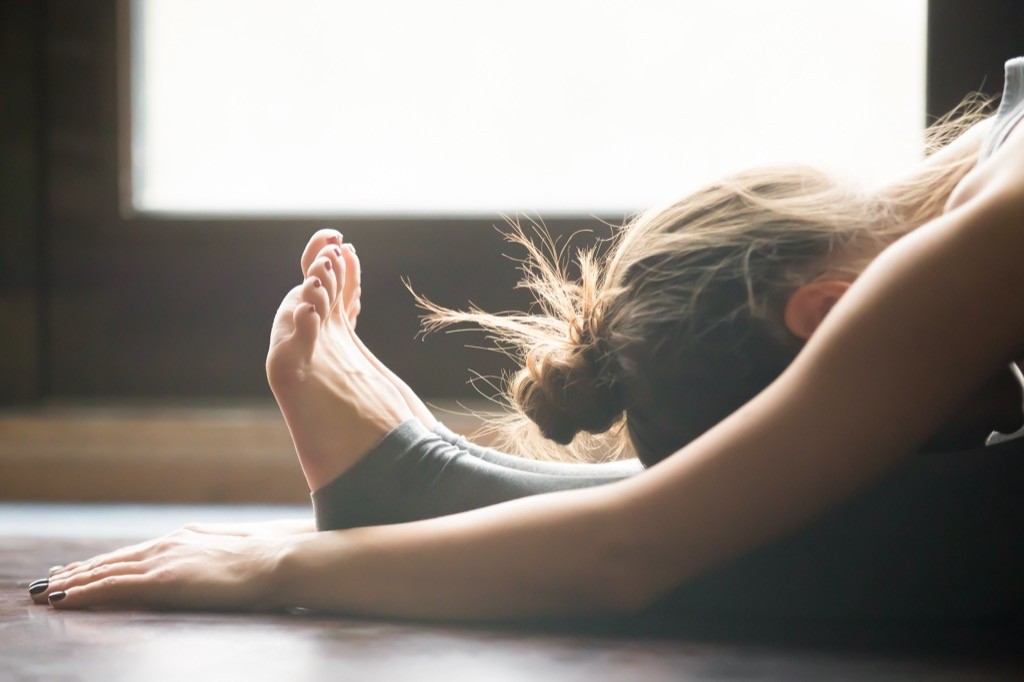
As a dancer turned dance teacher and fitness pro, stretching has been a big part of my daily routine for as long as I can remember. Flexibility training is important for dancers because it allows us to execute the technique safely and effectively, performing moves such as high kicks and split leaps. I got my first pair of tap shoes when I was three years old, so my routine has changed as I have aged, but there are still some exercises that I find to have bigger benefits than others to improve and maintain flexibility.
As a certified personal trainer, corrective exercise specialist, and group fitness instructor, I help my clients incorporate multiple elements of a flexibility training program, including static and dynamic stretching. Proprioceptive stretching, ballistic stretching, and even strength training exercises can increase flexibility.
Flexibility Training: Simple Stretches for Better Mobility
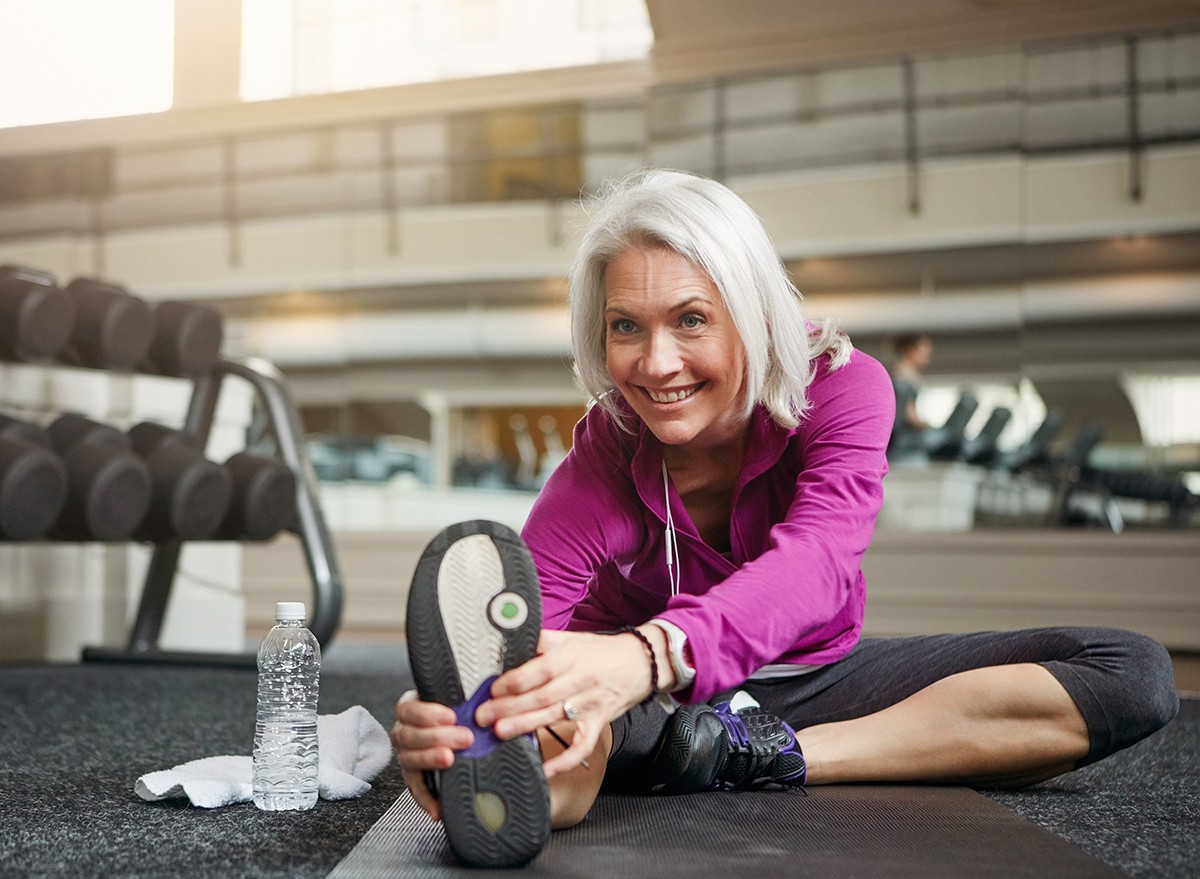
Flexibility training isn’t just important for dancers, however. It’s critical to quality of life especially as we age. Many of our daily movements also cause our muscles and connective tissues to shorten, causing them to feel tight as a result of being held in a shortened position for long periods. This, combined with worsening joint range of motion, can result in pain or movement dysfunction resulting in limited mobility, over-stressing other joints, and postural changes.
Incorporating some simple stretches and exercises into your daily routine, limiting time in a seated position, and moving more will help alleviate some of this tightness that usually appears in the hips, neck, shoulders, and chest.
Preparation
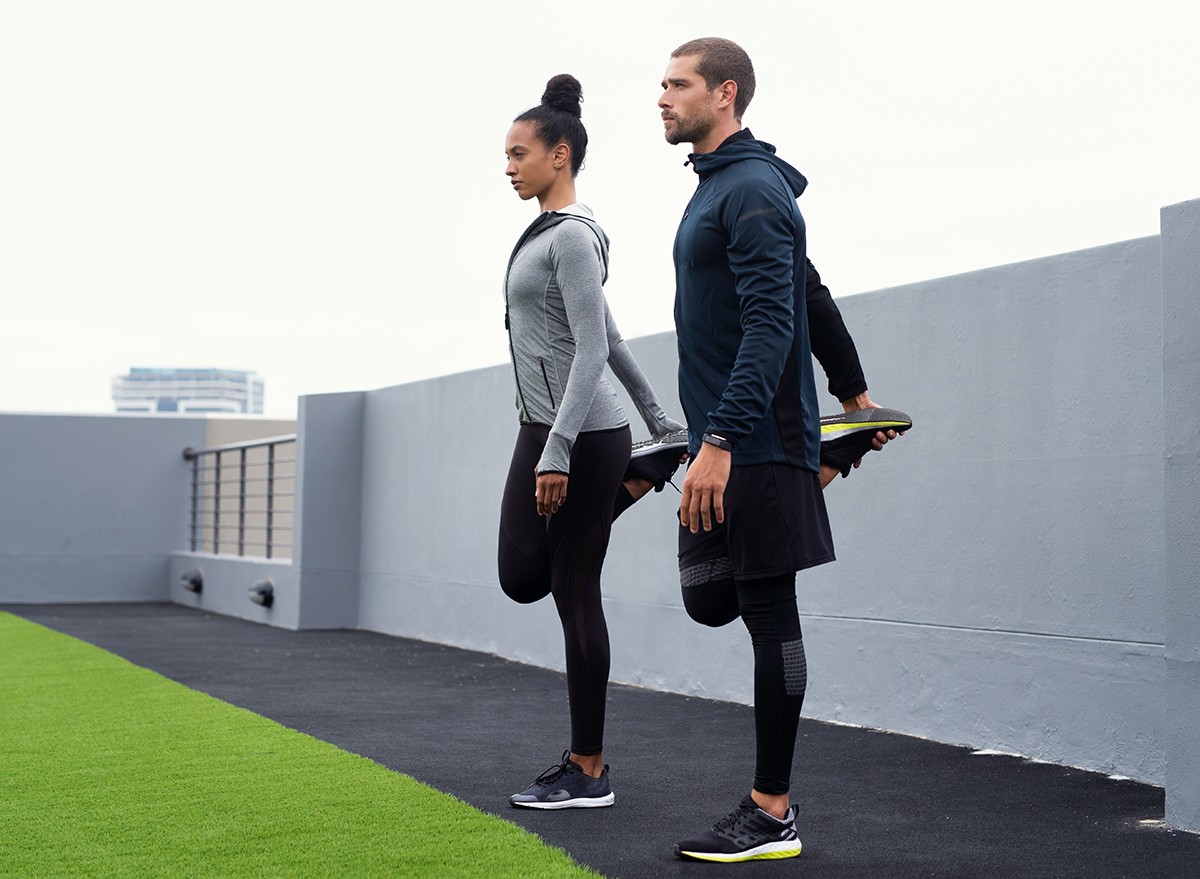
Before beginning flexibility training, you should be cleared by a medical professional. If flexibility training is new to you, it would also be a good idea to then consult with a certified fitness pro who can design a custom program for you and ensure that you complete targeted exercises and stretches with proper form to mitigate the risk of injury and get maximum results from your new program.
To begin each flexibility training session, you’ll want to ensure that your space is clear of obstacles and comfortable for any static floor stretches by grabbing a yoga mat and any necessary props, such as a pillow or yoga block. Then, you’ll need to warm up!
Warm-up
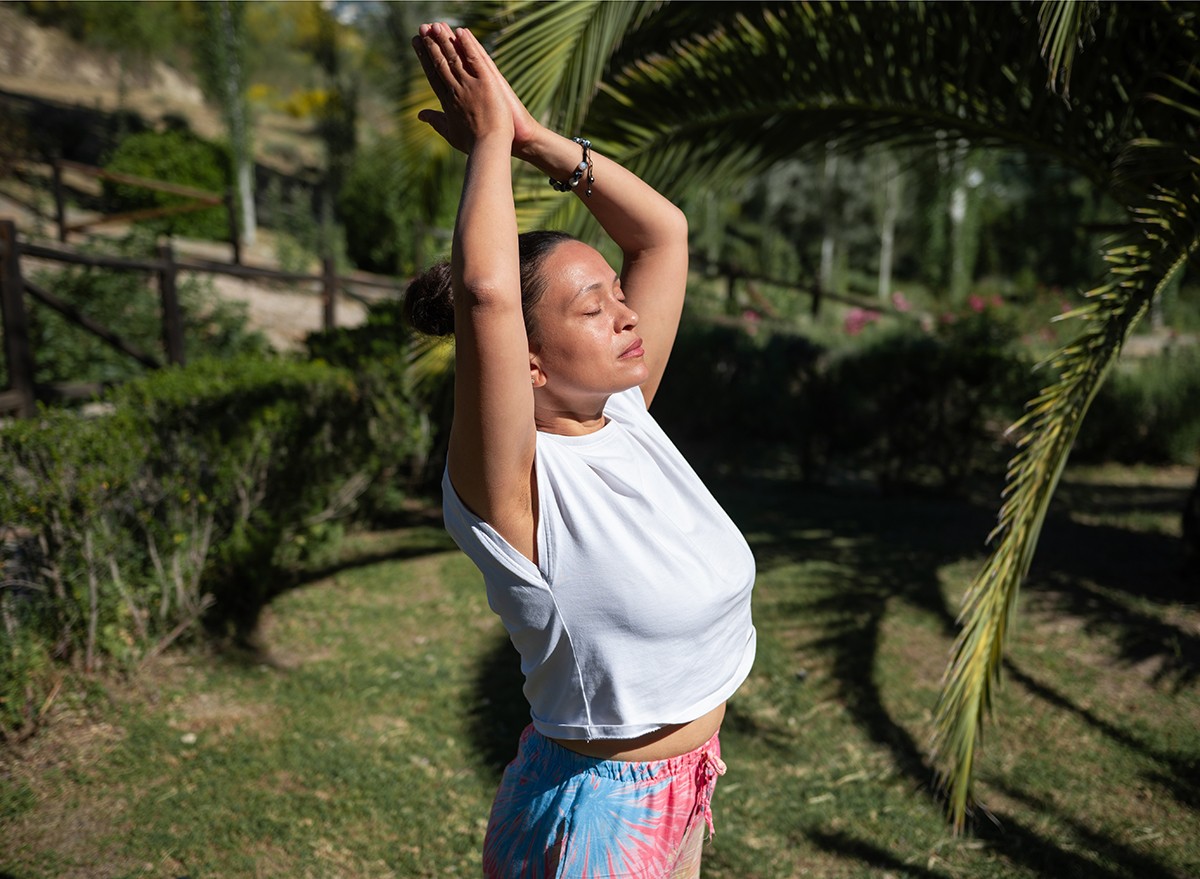
My favorite warm-up and the warm-up that I recommend to my clients most often is to bend the knees, then straighten the legs, reach the arms overhead, then float the arms down. Repeat eight to 10 times.
These are a few of the exercises that I incorporate into my daily routine below to maintain my flexibility. Most are appropriate for or can be modified for advanced beginner to intermediate-level flexibility training.
RELATED: Stretching Could Help You Live Longer.
Forward Fold
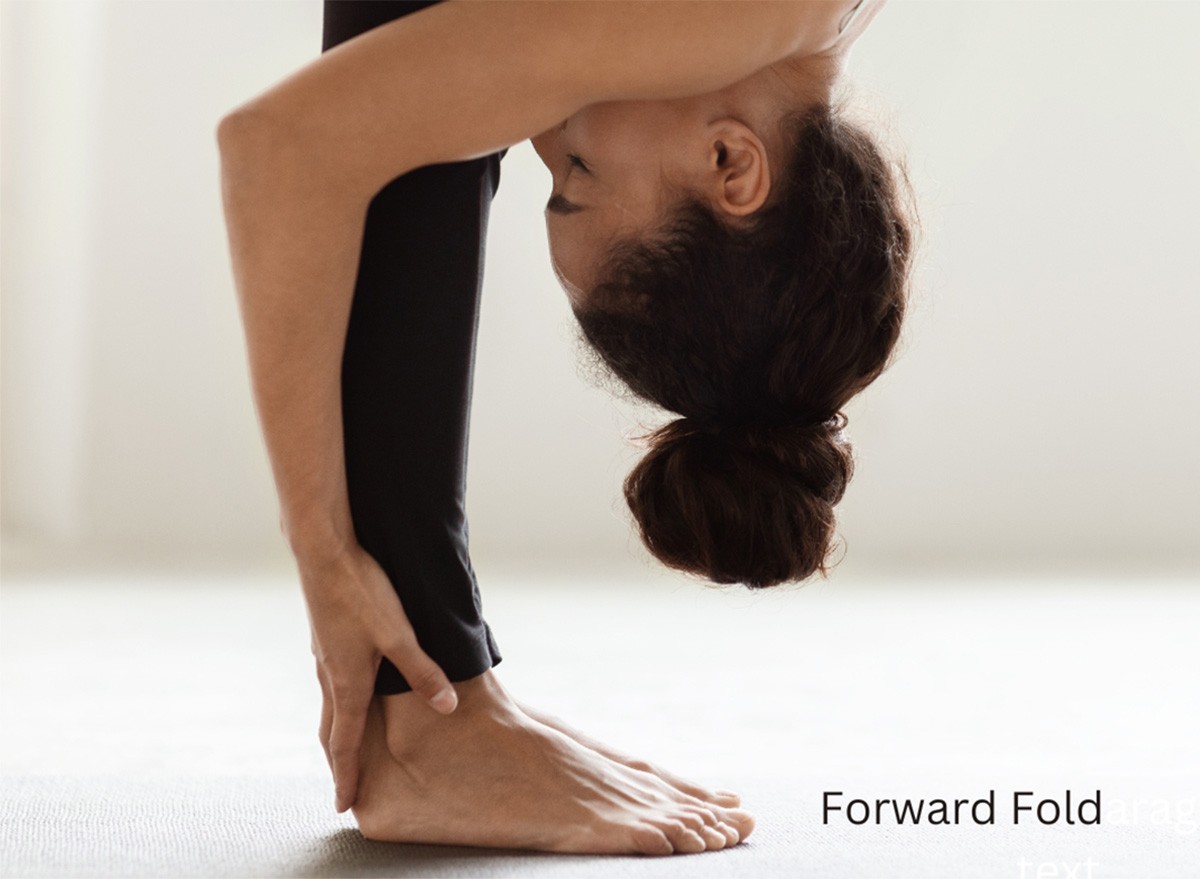
Forward fold: Gently tuck the chin to the chest and roll down through the spine, stretching the hands towards the floor. Then, bend the knees and slowly roll up one vertebra at a time. Repeat 8-10 times. This stretch wakes up the hamstrings and helps you find movement as you ease into deeper stretches.
Crescent Lunge
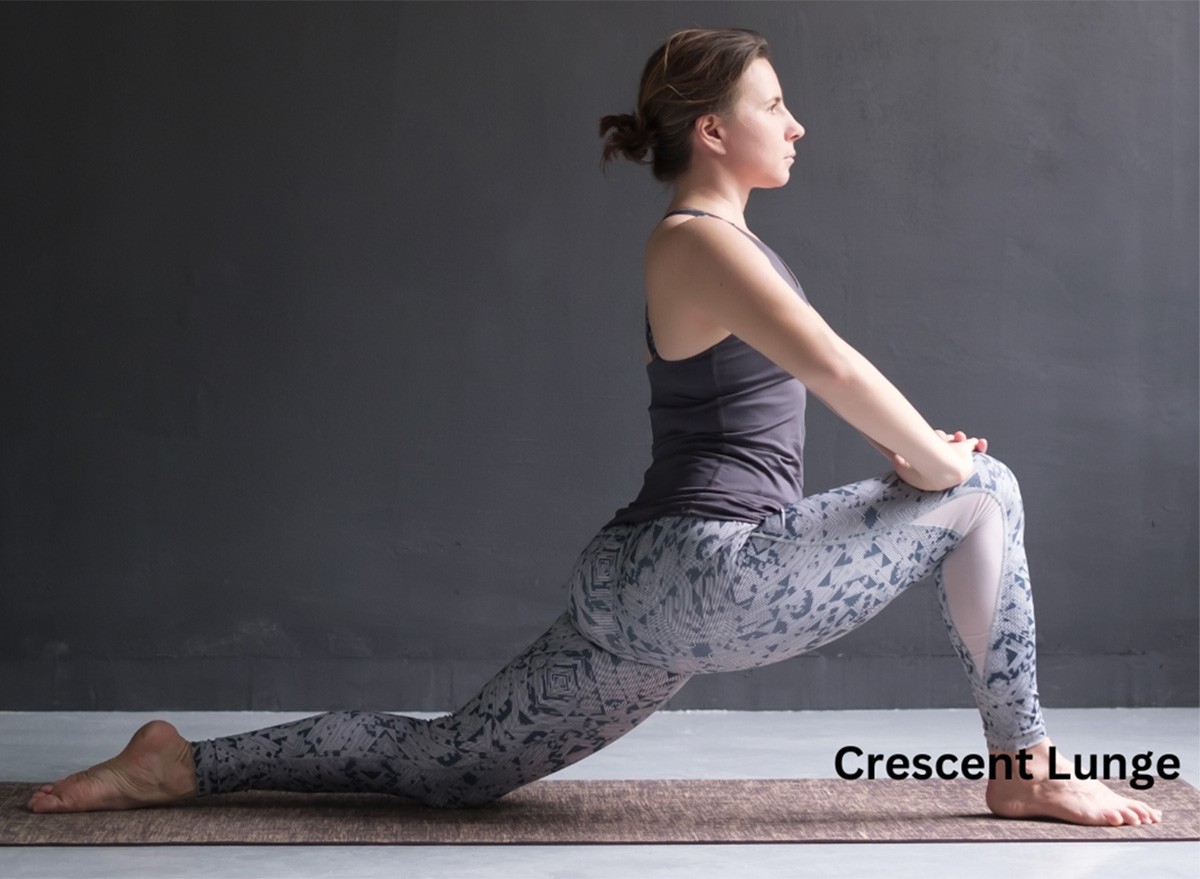
Crescent lunge: Begin in a low lunge position, stacking your front knee over the ankle, then drop your back knee to the floor. Place your hands on the thigh of the front leg as you shift the hips forward, ensuring that the front knee does not pass the toes. To deepen the stretch, slowly bring the arms overhead. This stretch can be further progressed by opening the chest and extending into a backbend. I love this stretch because it improves balance in addition to flexibility. It engages the quadriceps and stretches the opposite hip flexor. Additionally, it stretches the chest and mobilizes the spine.
Pigeon
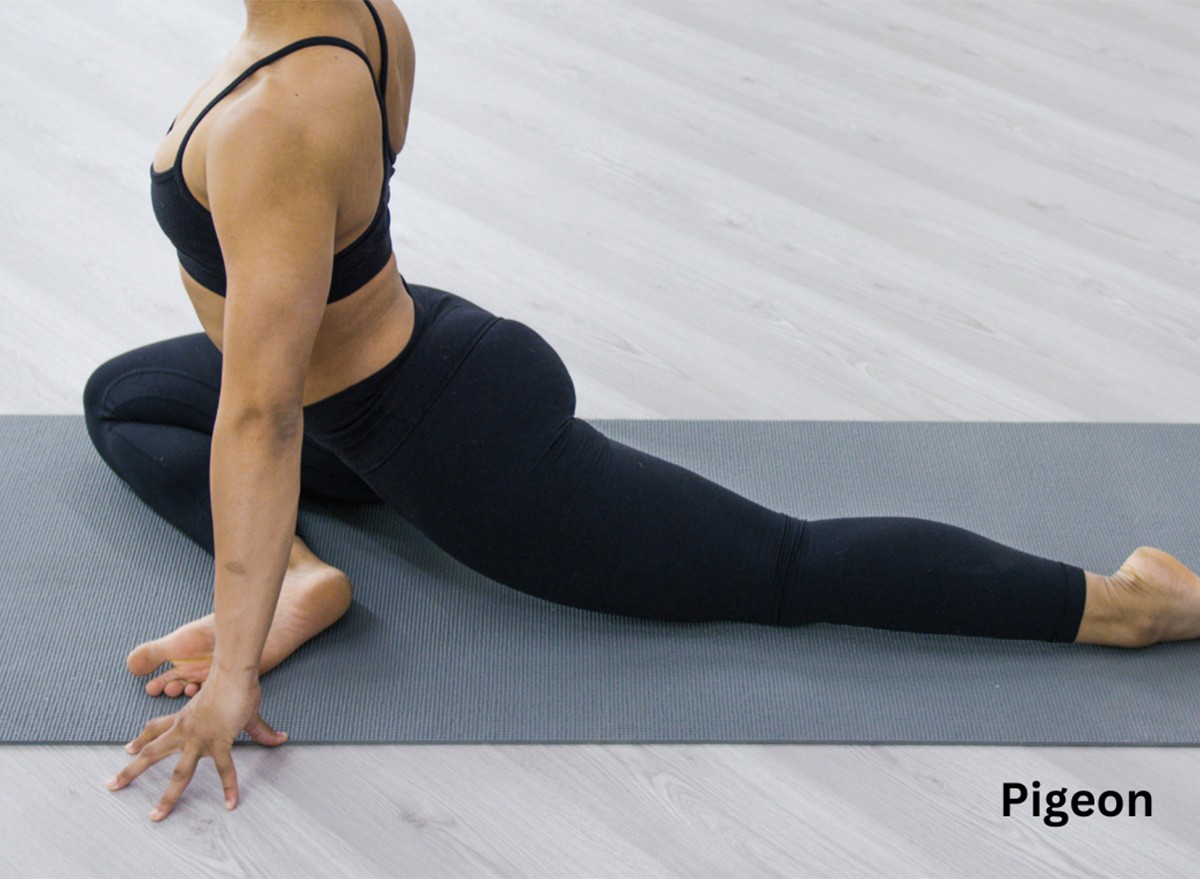
Pigeon: From a low lunge position, gently sink to the floor rotating your front leg so that the knee is pointing outward, and the outside of the front foot is engaged by pressing into the floor to protect the knee joint. Keeping the back leg straight, ensure that the knee is rotated down to the floor and that you are stretching through the front of the hip.
This is a great stretch for those seeking improvements in the range of motion in the hip joints. It also helps to release tension that is stored in the hips by providing a deep stretch for the outside of the front hip and the hip flexors of the back leg.
Thread the Needle
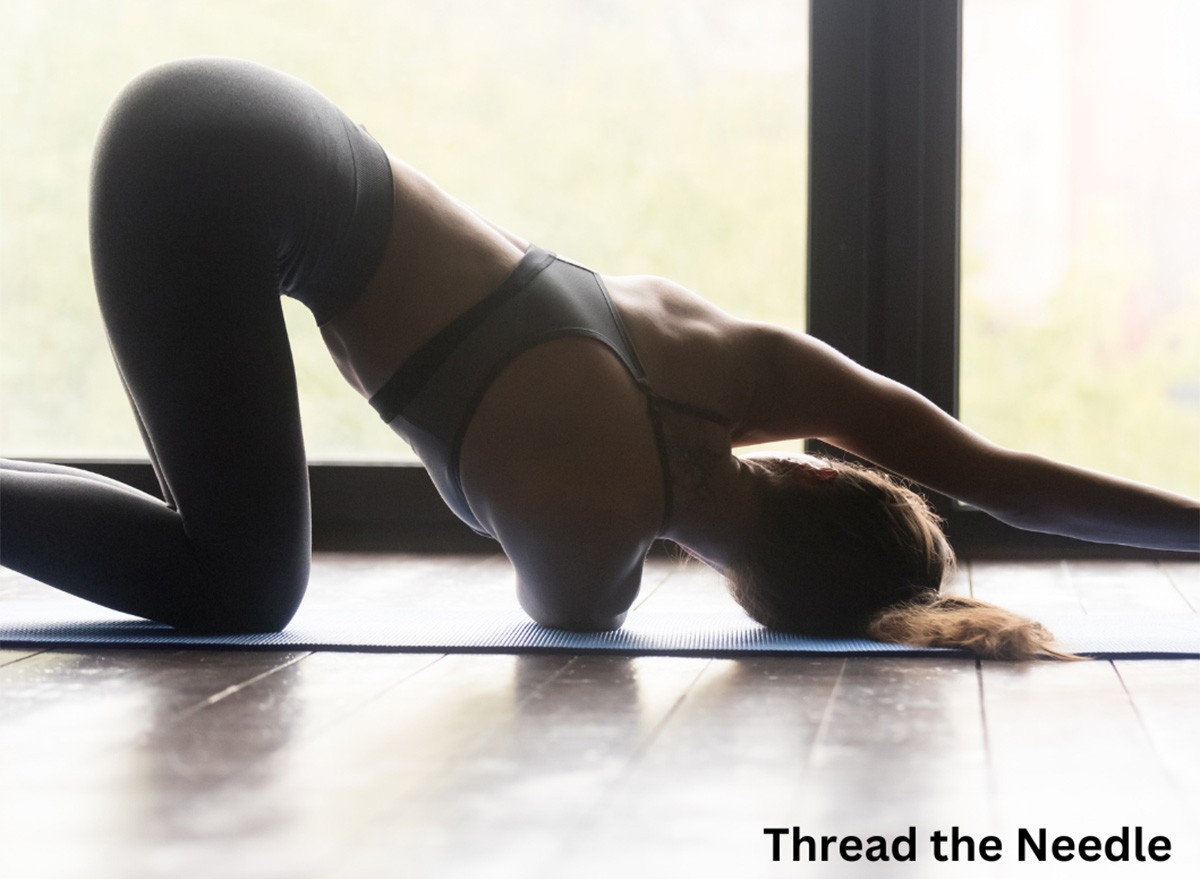
Thread the needle: Make your way into a child’s pose by assuming a quadruped position, stacking the shoulders over the wrists, knees over the hips, then sinking back, sitting on the heels, and stretching the arms out long. Take one hand, and then, as if threading a needle, send that hand under the other arm. Turn the head, gently resting the ear on the floor. Hold the stretch for approximately 20 seconds, then repeat on the other side.
This stretch is great for the shoulders and upper back, helping to release tension. This can be especially helpful for those who sit at a computer for extended periods.
RELATED: This Simple Balance Test Can Predict Your Fall Risk.
Supine Twist
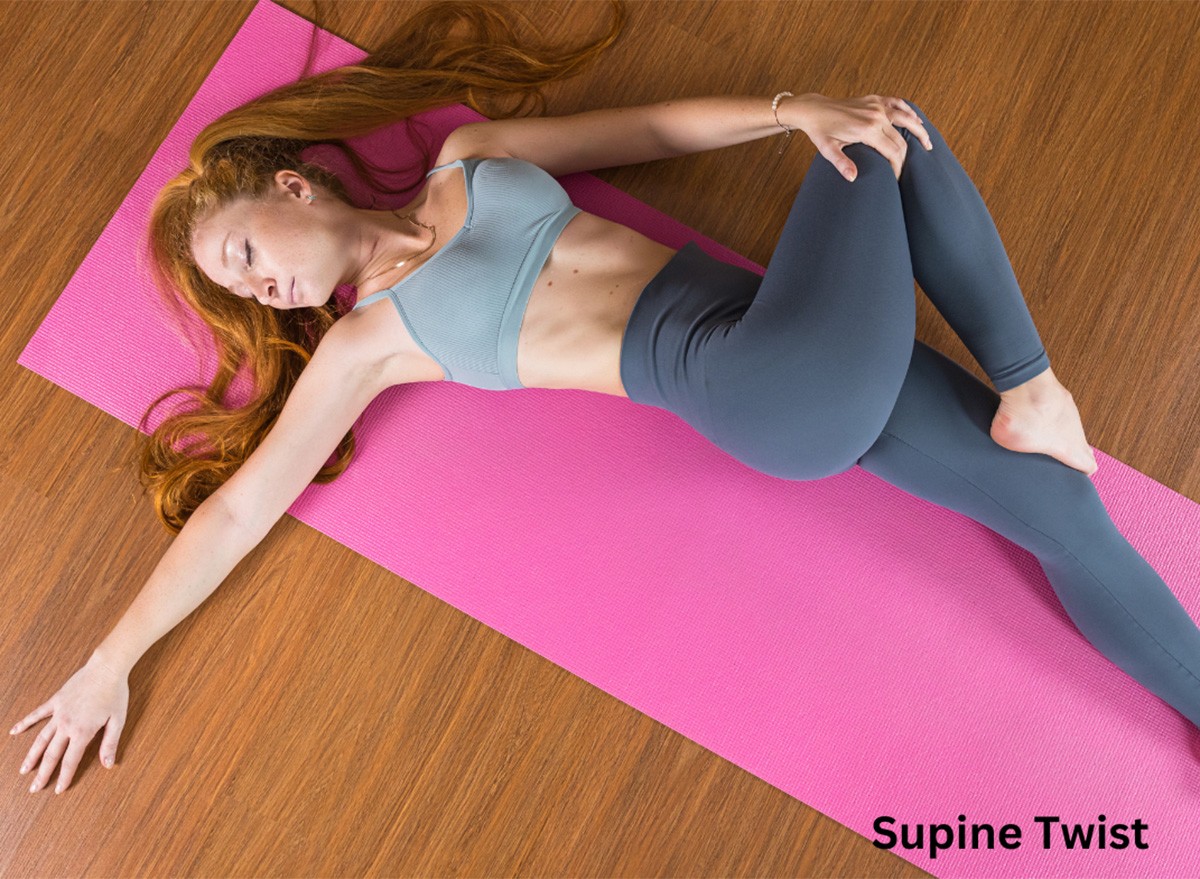
Supine twist: Another great exercise for the spine, lie on your back with one leg extended, and the other bent at the knee. Gently move the bent knee across the body, reaching the opposite shoulder towards the floor. Relax and try to breathe into the stretch, feeling the side body, for 20 seconds, then switch sides.
This stretch can release a lot of tension in the lower back.
Baby Cobra
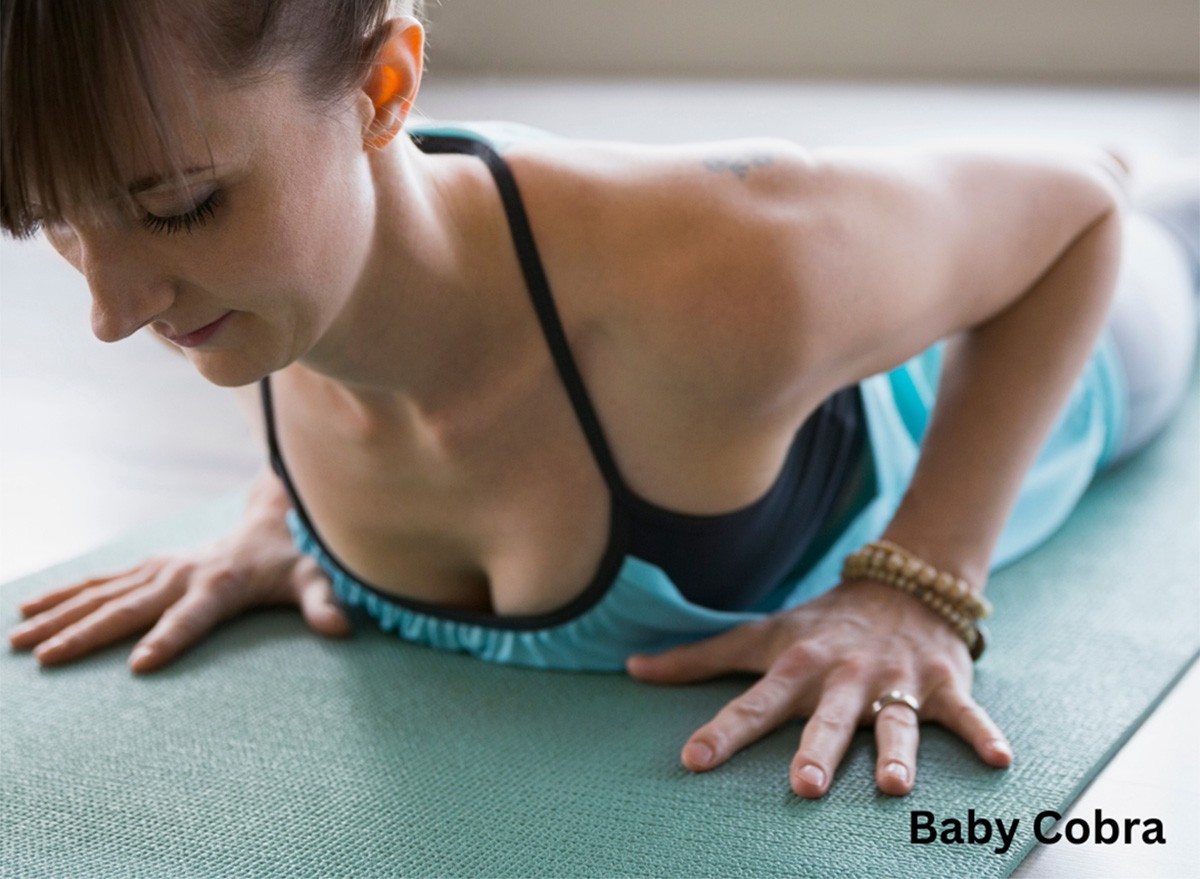
Baby Cobra: Lie on your belly, placing your hands under your shoulders. Opening the chest, press the floor away and lift the chest off the floor.
This exercise helps you strengthen the back muscles and stretch across the front of the body, improving posture.